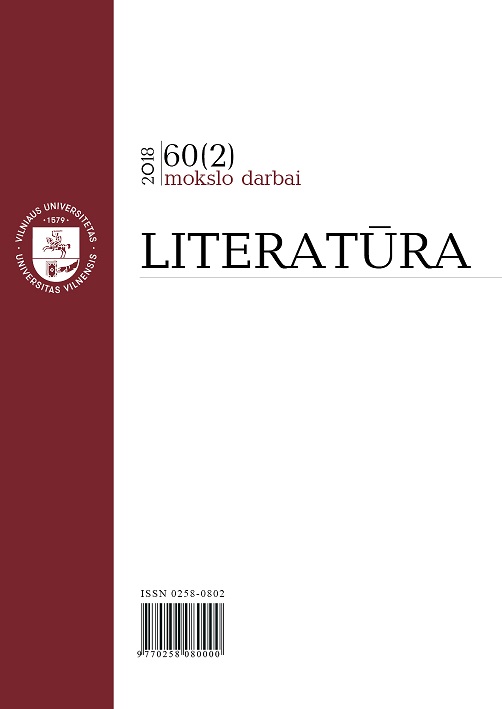
Мозаика архивных детективов пограничья
The review of: Александр Федута. Следы на снегу. Минск: Лимариус, 2018. 328 с.(Библиотека «XIX») / Alexander Feduta. Footprints in the Snow. Minsk: Limarius, 2018. 328 p. (Library "XIX")
More...We kindly inform you that, as long as the subject affiliation of our 300.000+ articles is in progress, you might get unsufficient or no results on your third level or second level search. In this case, please broaden your search criteria.

The review of: Александр Федута. Следы на снегу. Минск: Лимариус, 2018. 328 с.(Библиотека «XIX») / Alexander Feduta. Footprints in the Snow. Minsk: Limarius, 2018. 328 p. (Library "XIX")
More...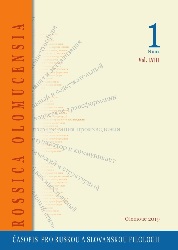
The present article is devoted to the work of the Belarusian playwright Franciszek Alachnowicz. In his work “Shadows” traces of poetic devices can be found. First of all, the author of the article pays attention to the psychology of the figure, the inner life of the heroes, a conflict between consciousness and soul, as the author creates an atmosphere of tension and horror. These features of his artistic style allow him to be counted among the representatives of the „new drama” – an interesting artistic phenomenon in European drama at the turn of 19th and 20th centuries.
More...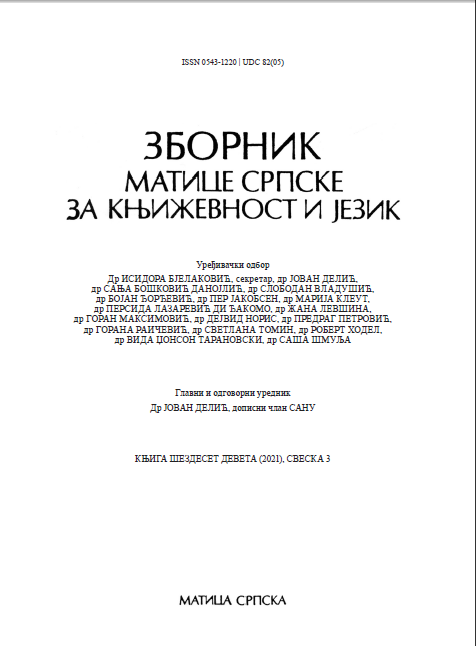
The Byelorussian Tristan is a unique Slavonic rendering of the French thirteenth‒century Prose Tristan. It survives in the Byelorussian language, in a single, late sixteenth‒century manuscript preserved at the Raczyński Public Library in Poznan, Poland (MS 94). It is generally accepted that The Byelorussian Tristan stems from a now lost Serbian medieval romance on Tristan and Isolt. Taking into account the Serbian, Byelorussian and Polish views on The Byelorussian Tristan, this paper aims to demonstrate that the Slavonic retelling of the Prose Tristan, like certain other works of Serbian medieval literature, departs form romance and changes into a kind of a ‘feudal epic’, much more appealing to the audience of the period, unaccustomed to the notion of courtly love.
More...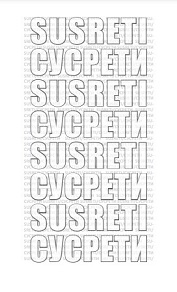
Belarusian folk tale translated by Dajana Lazarević:ВИХОРОВИ ПОКЛОНИ.
More...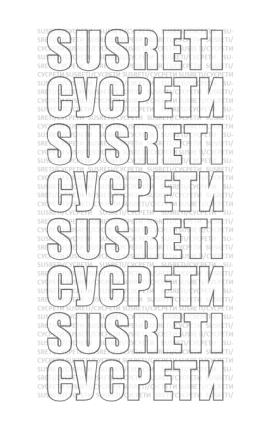
ЖИВА ВОДА – белоруска народна предања и легенде, прир. Иван Чарота; превела са белоруског Дајана Лазаревић, Алма, Броград, 2021
More...
Професора др Ивана А. Чароту нисам имао прилике лично да упознам. Упознао сам га преко неких његових текстова и превода захваљујући вриједној Дајани Лазаревић. Након тога сам добио велику жељу да га сретнем у Београду, Москви или Минску.
More...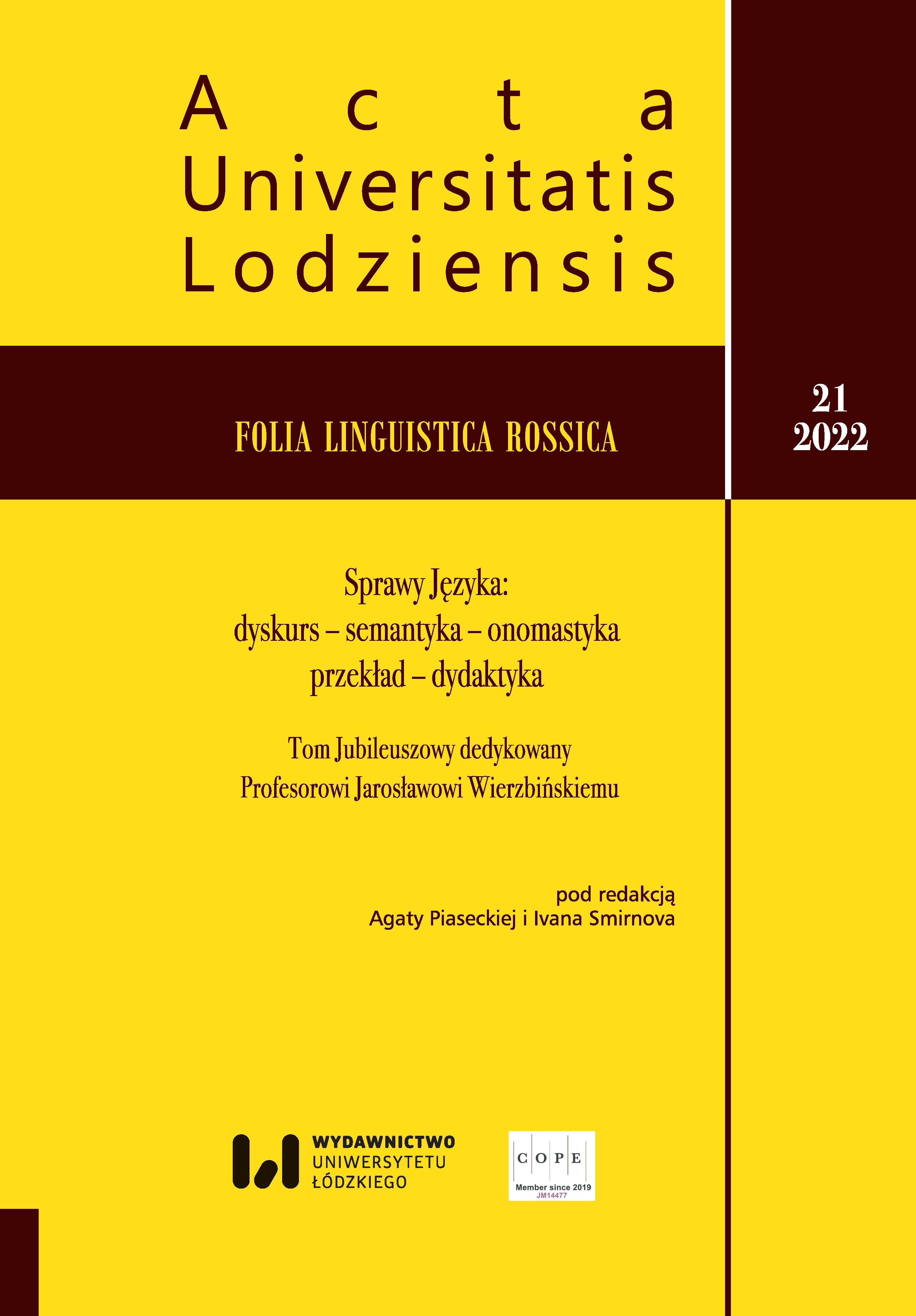
The purpose of the study is to characterize the isomorphism of metaphorics and intertextuality and to identify concrete linguistic forms of intertextual metaphors, represented in the language of Russian and Belarusian poetry, mainly of the 20th century. Based on the works of domestic and foreign scientists, the problem of intertextual and intercultural poetic interaction is investigated. The isomorphism of metaphorics and intertextuality leads to the closest union of these two phenomena; metaphors dialogizing in poetic speech undergo certain structural and semantic changes both within the language of one national literature and in the interaction of different national literary and poetic traditions.The research methods are structural-functional, component, contextual and oppositional analysis.The results of the study. The effect of the tropeic mechanism beyond the source text is revealed. Various methods of linguistic realization of intertext dialogue in Russian and Belarusian poetry at the level of the trope (continuation, branching of the metaphorical image, its denial, etc.) are identified and systematized.Conclusions, research prospects. The conclusion highlights the unity of the literary and cultural continuum, within which both traditional and unique, individually authored metaphorical tropes of Russian and Belarusian poets are dialogized. The active interaction of metaphorics and intertextuality is largely explained by their isomorphism. The proposed approach can serve as a working model for the study of other elements of the figurative structure of a poetic text as figurants of an intertext dialogue.
More...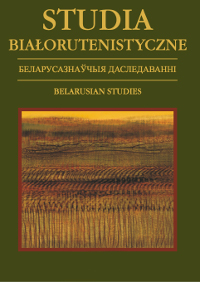
This article is devoted to an issue of the poetry of Ivan Ptasznikau’s prose that is illustrated on the example of one of the most significant texts written by this Belarusian author titled Łonwa (1964). The novel is built around historical issues (events from The Second World War and its consequences) and makes a perfect example of a conscious creation of a narrative language, dialogues and characters’ monologues on a strategy basis and techniques typical of poetic texts. It is proved not only by countless metaphors and comparisons, behind which the author was hiding a painful wartime reality but also by excellent syntax organisation that brings out new semantic spaces of the piece. Ivan Ptasznikau mixes various types of repetition (anaphors, epiphors and concatenations) within relatively short sections in an incredibly skillful way and uses sound values from the repetitiveness of letters and syllables (their multiplications or prolongations), thanks to which he creates a very suggestive space, saturated with colours, sounds and smells that are used not necessarily as a background for characters or events but as a means to shape senses and meanings that emerge from the plot. What is particularly interesting is the fact that he combines a narrative level with a feature level by using sound and rhetorical devices and a peculiar linguistic and stylistic over–organization. Particular words, recurring phrases and systematically recurring strategies and syntax tricks (especially those that form the so–called poetry of atmosphere) bond these two levels together, broadening the interpretation field of the whole piece.
More...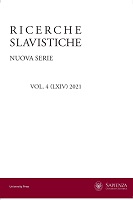
Present since the beginnings of modern Belarusian literature along with the adjoining genres of satire and disguise, parody became particularly relevant at the end of the 20th century. Among the most widespread parodic themes in contemporary Belarusian literature are the dreamlike experiences of the past, rejection of the fashions of the present, patriarchy, feminism, the role of women as companions and as obstacles for men, imaginary relationships with great writers of the past, sacrilege, too many 'ordinary' poets, love between passion and comedy, alcohol, food and parasitism. Also prevalent are themes such as self-satisfaction, the professional ambiguity of literature, poetic writing, often implying that the latter must be abandoned, as well as prosody, the privilege of travelling abroad and, finally, obscurity and incomprehensibility. No Belarusian writer is too important to do without parody. Ryhor Baradulin, not mentioned here, Uladzimir Njakljaeŭ and Ales' Razanaŭ were not spared from parody, sometimes successfully, sometimes less so. Humour touched the great poets and the weaker ones alike. It is difficult to say whether this is to be read as a sign of maturity in literature, as some have argued. It is certainly not the victims or their executioners who will say.
More...
This article is devoted to Dmitry Strocev (Minsk 1963), one of the major voices of Belarusian poetry in Russian. The investigation begins from the political and cultural context in which Strocev develops his vision of the world and of art, namely the multi-faceted world of Belarusian dissent in the second half of the 20th century. Particular attention is devoted to two personalities who have been fundamental for Strocev: Kim Chadzeeŭ (Kim Chadeev), the driving force behind the “second culture” of Belarus, with whom Strocev comes into contact at the beginning of the 1980s, and Veniamin Ajzenštadt (known by the pseudonym Blažennyj), with whom he shares the same artistic and existential tension, which takes the form of an open dialogue with God, but imbued with concrete reality. The poet becomes an “apostle of things”, in a vision that never separates the transcendent from the immanent and finds in the mythical vision a key to interpreting the history of his country. After identifying the main sources of Strocev's poetry, the article briefly traces its evolution, from the first collections, influenced by avant-garde experimentation and Moscow conceptualism, to the last poems, in which the poet explores new genres and introduces elements of surrealism into the chronicle of everyday life. The last part of the article is dedicated to Strocev’s most recent production, the “protest poems” (protestnye stichi) first published on Facebook, and then translated into several languages (Ukrainian, Polish, Lithuanian, Italian, German, Swedish) through which Strocev gives testimony to the most recent history of Belarus in revolt. The aim of the article is to present the figure of Dmitrij Strocev within the context of Belarusian poetry in Russian, highlighting the sources, themes and language that the poet uses to communicate his view of the world and to express through art his opposition to Lukašenka’s regime.
More...
The article presents a reflection on Dogs of Europe (2017), the major work of Al'herd Bacharėvič, a reflection that opens with an introduction to the author's biography and literary career. Both developed intertwined with the history of today's late Soviet, post-Soviet democratic and authoritarian Belarus and the fate of the Belarusian language, suppressed in the Soviet Union, revived in the first half of the 1990s and now marginalised again. This novel is as much about the present moment and future of Belarus and Belarusians as it is about the Europe of individual freedoms and its antithesis in the form of the authoritarian Russian Reich. The Belarusian language and the ability to make individual choices are indicative of democracy and civil liberties, which are completely suppressed in today's Belarus and Russia.
More...
Reviews of: 1. Dmitrij Strocev, Terra sorella. Trad. e cura di Giulia De Florio. Valigie Rosse, Livorno 2020, 122 pp. 2. Dmytro Strocev, Pyl, sčo tancjuje. Duch i litera, Kyjiv 2020, 128 pp. 3. Dmitrij Strocev / Dzmitrij Strocau, Bela-rus ’ oprokinuta / Belarus ’ perakulenaja. Trad. di Andrej Chadanovic. Novye mechi, s.l. 2021, 131 pp.
More...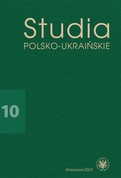
The memoirs of Salomea Regina Pilsztyn née Rusiecka can be called a Baroque novel and, at the same time, is a remarkable monument of Belarusian and Polish literature. The work is a vivid manifestation of the self-identification of the author, who not only tries to see her life path in the context of her contemporary era but also records the memories of her life, recording the movements and experiences of her own soul. Here, the memoir genre gradually begins to dissolve in the narrative strategies of a prose work. War should be considered in memoirs as an artistic image and a phenomenon of everyday life. The discourse and historiosophy of the image of war as a history of everyday life in the memoirs of Salomea Rusiecka become the heart of his narrative strategies. War is one of the most important artistic concepts of this work. The poetics of the image of war in the text is based on a realistic presentation of events and details. War, captivity and death, blood, and suffering in the memoirs of Rusietska de Pilschtyn appear as indispensable and integral details of the history of everyday life of people and peoples of the Baroque era.
More...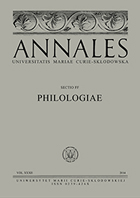
In the context of the ideas of the Russian literary critic and philosopher Mikhail Bakhtin about the “small” and “great” time of a work of art, the article examines the work of the famous Belarusian poet Aleh Minkin (born in 1952). Analyzing the poems of Minkin from the poetry collections of Surma (1985) and Raskolina (1991), the author of the article comes to the conclusion that Minkin’s poems, which arose in the context of a “small” time (the biography of the poet, the history of Belarus at the end of the 20th century), still remain relevant in the thematic and ideological aspect (national revival motifs, dreams of freedom and true independence of the native country), and thanks to the deep rootedness in the literary tradition, intertextual connections with the masterpieces of world literature (Dante’s Divine Comedy, Edgar Allan Poe’s Raven, Maxim Bahdanovich’s Chase, etc.), the perfection of the artistic form strengthen their presence in “great time”: they are being republished in collections of selected works of the poet, collective anthologies, influencing the work of other writers and, before our eyes, becoming classics of Belarusian literature.
More...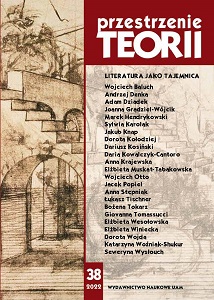
The article refers to Chernobyl prayer, the documentary prose of Svietlana Alexievich. The aim of the article is to draw attention to the presence of the genres of confession and prayer in the reportage. They are used by the interlocutors, who entrusted the journalist with their accounts of the traumatic experiences in connection with the Chernobyl nuclear disaster in 1986. The author focuses on showing various features of both genres (intimacy, familiarity, discretion) and describes them with the perspective of an average person who unknowingly and instinctively searches in them for answers that medicine and science cannot give. Alexievich’s reportage describes the loneliness of an individual in the face of events that most ignore in silence, while their participants remain helpless and mutilated for life.
More...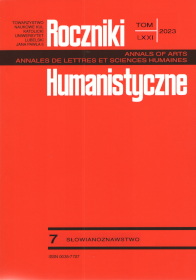
Since the beginning of the 21st century theatre, and to a greater extent modern drama, has been performing journalistic functions due to the absence of independent media in Belarus. The article analyzes the work of the Belarus playwright Maxim Dosko (Radio Kultura, London) from the national identity manifestation point of you on his characters, in order to understand how this category functions and develops in the conditions of bilingualism, and how it is influenced by post-colonial mental phenomena. The heroes of Maxim Dosko’s plays are ordinary residents of the Belarusian province or the suburbs of Minsk, unconsciously looking for answers to the most important questions related to mentality and identity. At the same time, they are characterized by the absence of cultural traditions and even ignorance of their native language. Using an interdisciplinary approach, the author analyzes the self-identification of the heroes of the young Belarusian drama, asking whether they feel like representatives of an independent state or whether they still function in the homo soveticus model presented in Svetlana Alexievich’s book Secondhand Time: The Last of the Soviets.
More...
The article deals with the poetry of Aleh Minkin (born in 1952) of the period of transformation: poems written in 1991-2016. in Vilnius and Moscow, after the departure of the poet from Belarus. In addition to changing the place of residence, Minkin’s work of the late period was also influenced by important historical events: the transformation of Lithuania, and then Belarus into independent states, the first presidential elections in Belarus and the coming to power of Alexander Lukashenko, the fiasco of the Belarusian national revival, strengthening the colonial dependence of Minsk on Moscow, turning Russia and Belarus into totalitarian states. Poems from the collections Pyenaty (2007) and Myanye tut nye bylo… (2018) are analyzed in a biographical and socio-political context. The main direction of the poet’s creative evolution is determined: from neoclassicism and neomythologism of the early collections of Surma (1984) and Raskolinа (1991) to the lyrics of direct experience and metaphysical poetry of the late period.
More...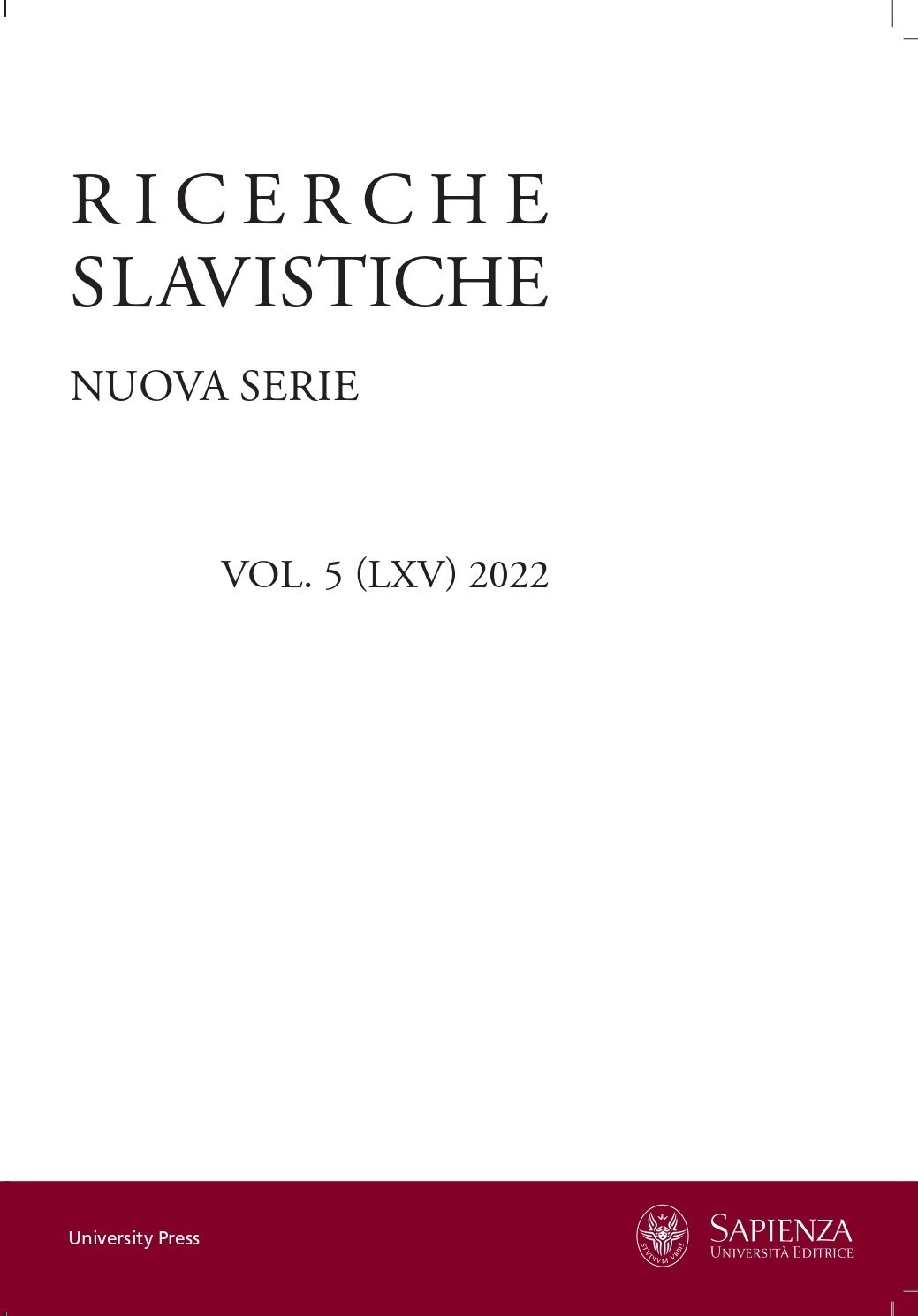
The latest phase of Vol'ha Hapeeva's career, whose prose and poetic work has won numerous prizes, especially in German-speaking countries, includes writings from 2019-2021, in which the author, describing in prose her childhood in Soviet Belarus, gives life to an imaginative metaphysical detective story. Her verses, which are intimately personal in their reflection of the author's deep-rooted feminist convictions against the stubbornly patriarchal character of the society in which she lives, have also matured over time, to the point that they have earned her a place of honour among the leading contemporary Belarusian poets.
More...
In the years 1922–1936 in the Belarusian Soviet republic there were four official languages: Belarusian, Yiddish, Polish and Russian. There were educational institutions, theatres, print publishing houses and literary organizations of national minorities, including Latvian and Lithuanian. Russian-speaking authors who started in the circles of workers’ correspondents (rabkors) and literary studios, by 1926 formed the group “Zvenya” (“Links”), from which in 1927 the group “Minsky Pereval” (“Minsk Pass”) was separated. In the studies devoted to the Belarusian-Russian literary interrelations and the history of Russian-language literature in Belarus, the activities of this group are not presented. The article fills this gap and offers new aspects for considering the problem of Belarusian-Russian relations and non-Belarusianlanguage literature in Belarus. Despite a significant number of studies, both problems remain relevant. The material of the article controverts the ideologically biased position that considers Belarus as an indigenous part of the “Russian world”, and at the same time proposes a popular one in literary studies in relation to the period of the 16th–19th centuries (sometimes also the 20th century) the concept of “multilingual literature of Belarus”. The article traces the stages of the institutionalized existence of Russian-speaking group in the Belarusian literary space, from contradictory relations with the influential association “Maladniak” (“Saplings”) to the establishment of the Union of Soviet Writers (1934). It was used the archival documents, publications of Russian-language authors of the 1920s and early 1930s, and the verbatim report of the First Congress of Soviet Writers. The group was not realized as a collective project because in the “multinational Soviet literature” built since the mid-1920s there was no place for extraterritorial Russian-language literature as national minority literature.
More...
The article is devoted to the protests after the falsified presidential elections in Belarus in 2020 on the example of a collection of stories by Alhierd Bakharevich “A Police Search in the Museum”. Particular attention is paid to the creation of heroes, as well as the entanglement of the individual in history. The characters are divided into two groups: ordinary people who, despite their fear, decided to participate in demonstrations, and people struggling with the hardships of everyday existence, who, despite their lack of political involvement, become the subject of interest of representatives of the authoritarian power. The collection of stories, published in 2023, introduces a new direction in contemporary Belarusian prose related to protests. The analyzed work has not yet been the subject of in-depth reflection in literary studies. A traditional comparative analysis was used, where the decisive criterion was the positioning in relation to the role of executioner – victim. The aim of the article is to point out that the heroes of social protests were ordinary people who were pushed into action by their disagreement over the open violation of freedom of choice and the inability to decide on their fate, or the brutality of the representatives of the authorities. In the stories, there are characters expressing both individual and collective experience. The created characters and their adventures are therefore a literary record of events related to the post-election protests and everyday existence. The analysis proved that in the image of the protests, special attention was paid to a man and the role of history in his life. The characters created are ordinary people, representatives of various professions and social classes. These are not individuals whose character traits would make them stand out from society. These are average people who are unable to accept the actions of the authorities any longer. The past is largely absent, as it is only marginally remembered. Such an approach allows us to emphasize the role of ongoing events and indicates that they determine a person’s life.
More...